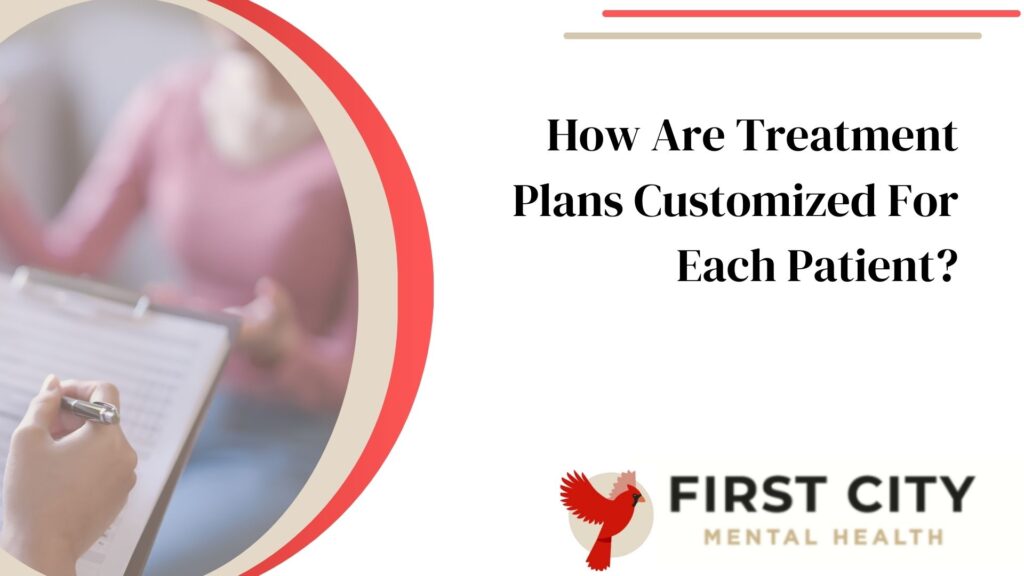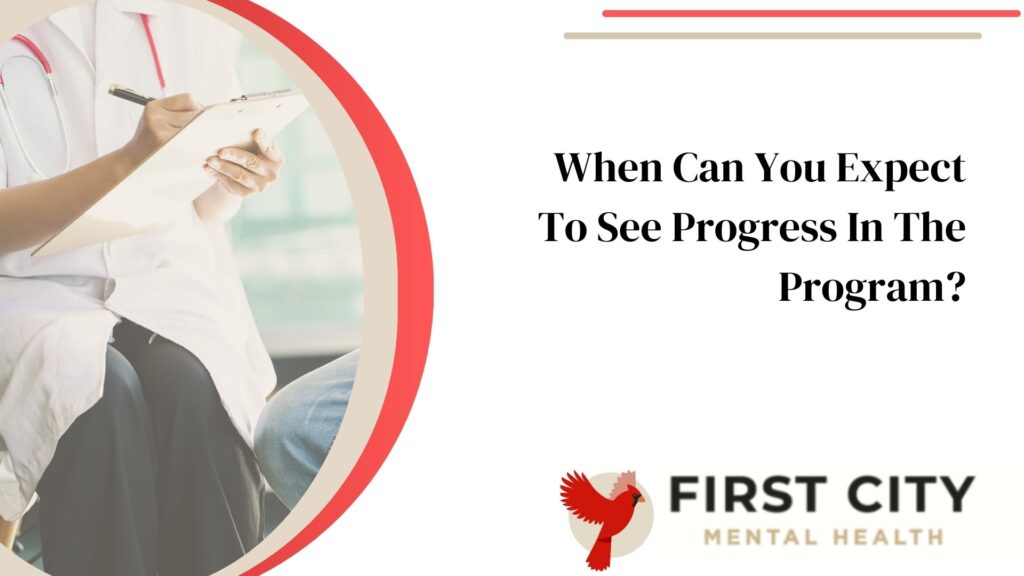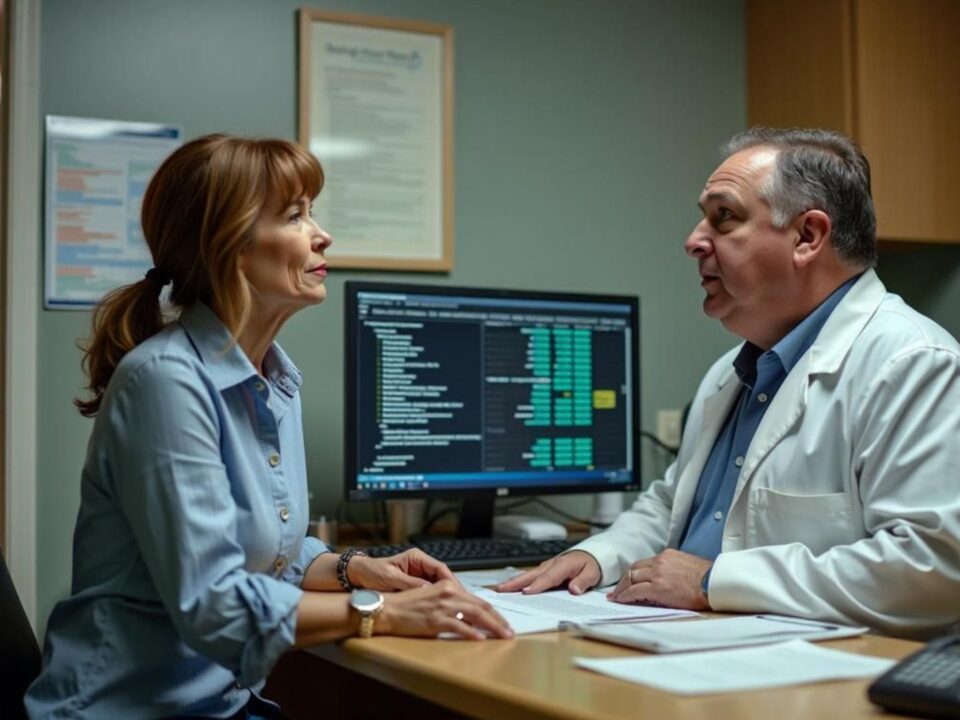
How Co-Occurring Disorders Treatment Centers Enhance Recovery Outcomes
January 21, 2025
How Does Co-Occurring Disorders Treatment In Kokomo Support Long-Term Recovery?
January 21, 2025Are you or a loved one struggling with both mental health issues and substance abuse? This double whammy can make life feel like an uphill battle. But there is hope! Co-occurring disorders treatment programs offer specialized help for people facing these twin challenges.
Co-occurring disorders, also known as dual diagnosis, combine mental health conditions with substance use problems. The journey to recovery may seem long and tough but the right treatment program can make all the difference.
In this article, you’ll discover what therapies are used for mental health disorders, why initial assessments matter, and where such treatments usually take place. By understanding this process better, you’ll be well-equipped to find the best co-occurring disorders treatment for your needs.
Keep reading to learn more!
Key Takeaways
- Co-occurring disorders treatment programs address both mental health issues and substance abuse.
- Therapies like CBT, DBT, medication management, art therapy, yoga, exercise programs, and support groups are used.
- Initial assessments identify the root causes of issues and help create customized treatment plans.
- Medical detox removes harmful substances from the body before starting further treatments.
- These programs take place in various settings including hospitals, mental health centers, residential facilities, and through telemedicine.
What Types Of Therapies Are Used In A Co-Occurring Disorders Program?
Co-occurring disorders treatment Kokomo, Indiana includes various therapies. Each therapy helps address different needs of the patient.
- Cognitive-Behavioral Therapy (CBT)
- Helps change negative thought patterns.
- Teaches coping skills for dealing with stress and triggers.
- Dialectical Behavior Therapy (DBT)
- Combines individual therapy with group sessions.
- Focuses on mindfulness and emotional regulation.
- Medication Management
- Stabilizes mental health conditions like depression or anxiety.
- Reduces cravings and withdrawal symptoms for substance use disorders.
- Art Therapy
- Uses creative expression to process emotions.
- Can be calming and therapeutic for many patients.
- Yoga and Meditation
- Promotes relaxation and stress relief.
- Enhances overall well-being through physical movement and mental focus.
- Exercise Programs
- Encourages physical activity to boost mood.
- Provides a healthy outlet for energy and stress.
- Healthy Eating Plans
- Improves physical health which supports mental health recovery.
- Offers guidelines for balanced nutrition.
- Support Groups
- Offers peer support from those facing similar challenges.
- Provides practical advice and shared experiences in co-occurring disorders treatment centers.
- Psychiatric Services
- Includes counseling, therapy, and psychiatric evaluations.
- Essential for comprehensive care in adult co-occurring disorders treatment programs like those found in Kokomo, Indiana.
Next, learn why an initial assessment is crucial in treatment programs for mental health services administration.
Why Is An Initial Assessment Important In Treatment Programs?

Identifying the root causes of mental health issues is crucial for effective treatment. An initial assessment in co-occurring disorders treatment programs plays a vital role. It pinpoints both mental health and substance use disorders, enabling experts to craft specialized plans.
This thorough evaluation also uncovers underlying trauma or stressors that may affect recovery. Detecting conditions like PTSD, schizophrenia, OCD, or Borderline Personality Disorder early on allows for timely intervention.
Moreover, assessments provide a safety net by evaluating the risk of self-harm or suicide among patients. Understanding these risks helps caregivers act promptly and safely. They also establish a baseline to track progress and modify treatments as necessary.
This continuous tracking ensures patients receive the most effective care throughout their journey in integrated treatment for co-occurring disorders.
Initial assessments are not just paperwork; they save lives, says Dr. Smith from Kokomo Indiana’s leading program for co occurring disorders treatment.
When Does Medical Detox Play A Role In Treatment?
Medical detox usually plays a role when someone has both a mental health disorder and a substance use disorder. It helps remove toxic substances from the body. For example, if you have Major Depressive Disorder or Bipolar Disorder, medical detox might be necessary.
This process prepares you for further integrated treatment for co-occurring disorders.
Conditions like Schizophrenia, PTSD, and OCD may also need medical detox as part of their co-occurring disorders treatment in Kokomo, Indiana. Detox ensures that your body is free from harmful substances before starting other therapies.
Where Are Co-Occurring Disorders Treatment Programs Typically Held?
Treatment for co-occurring disorders programs are often held in mental health care facilities or treatment centers. Hospitals and specialized psychiatric hospitals also host these programs.
Community mental health centers and outpatient clinics frequently provide such treatments for co-occurring disorders.
Residential treatment facilities offer comprehensive programs, integrating holistic approaches like yoga and meditation. Some vital services may even be available through telemedicine or online platforms for remote access.
Rehabilitation centers also play a key role in treating co-occurring disorders comprehensively.
How Are Treatment Plans Customized For Each Patient?

Treatment plans for co-occurring disorders treatment centers focus on each patient’s specific needs. These plans may include medication, psychotherapy, self-care practices, and support groups. Each patient’s mental health diagnosis requires an individualized approach to management.
Different co-occurring disorders also require different treatment methods. For example, emotional self-harm needs one strategy, while grief might need another.
The severity of these disorders can change over time. This means the treatment plan must evolve too. Continual assessment helps adapt the strategies effectively. A blend of therapies often works best in addressing these issues properly.
Each component of the plan should consider what will benefit that particular individual most at any given time.
What Role Does Group Therapy Play In Recovery?
Group therapy provides a supportive environment to share experiences. People with adult co-occurring disorders treatment find comfort in not being alone. Sharing reduces feelings of isolation and stigma.
Participants gain new coping skills and build social support networks. Peers offer feedback, enhancing motivation, accountability, and commitment to recovery. Sessions are led by trained professionals focusing on specific therapies.
Why Is Dual Diagnosis Critical In Co-Occurring Disorders Treatment?
Dual diagnosis addresses both a mental health disorder and a substance use disorder. Treating them together is vital because they can worsen each other. For instance, untreated depression may lead to alcohol abuse, which then intensifies feelings of sadness.
Programs for co-occurring disorders treatment in Kokomo, Indiana combine therapy and medication to tackle both issues at once. Integrated care helps prevent relapse while promoting long-term recovery.
Alternative therapies like meditation can boost well-being during treatment by reducing stress and improving mental clarity. This comprehensive approach ensures effective results for treatment for co occurring disorders patients battling more than one condition.
When Can You Expect To See Progress In The Program?

Progress in the treatment of co-occurring disorders varies. Expect to see initial improvements within the first few months. However, these signs can fluctuate due to the severity of the conditions.
Regular assessments and individualized strategies are crucial.
Longer durations of care often yield better results in treating co-occurring disorders. Patience is key, as early diagnosis and continuous support make a big difference. Treatment programs like those for co-occurring disorders treatment Kokomo Indiana emphasize customized plans that adjust as needed.
Final Thoughts
Co-occurring disorders treatment program offers a path to recovery. These programs use therapies like CBT and group sessions to help patients. Initial assessments, medical detox, and customized plans ensure effective care.
Group therapy provides vital peer support during recovery.
The journey isn’t easy but it’s worth it. If you’re struggling with dual diagnosis, reach out today for the help you need!
FAQs
What is treatment for co-occurring disorders?
Treatment for co-occurring disorders involves addressing both mental health issues and substance use problems at the same time. This dual approach helps in tackling the root causes effectively.
How long does a typical co-occurring disorders treatment program last?
The length varies, but most programs range from 30 to 90 days. Some may extend longer based on individual needs and progress.
Are family members involved in the treatment of co-occurring disorders?
Yes, many programs include family therapy sessions. These help build a support system and improve communication among loved ones.
What types of therapies are used in treating co-occurring disorders?
Therapies can include cognitive-behavioral therapy (CBT), group therapy, medication management, and holistic approaches like yoga or meditation for comprehensive care.






